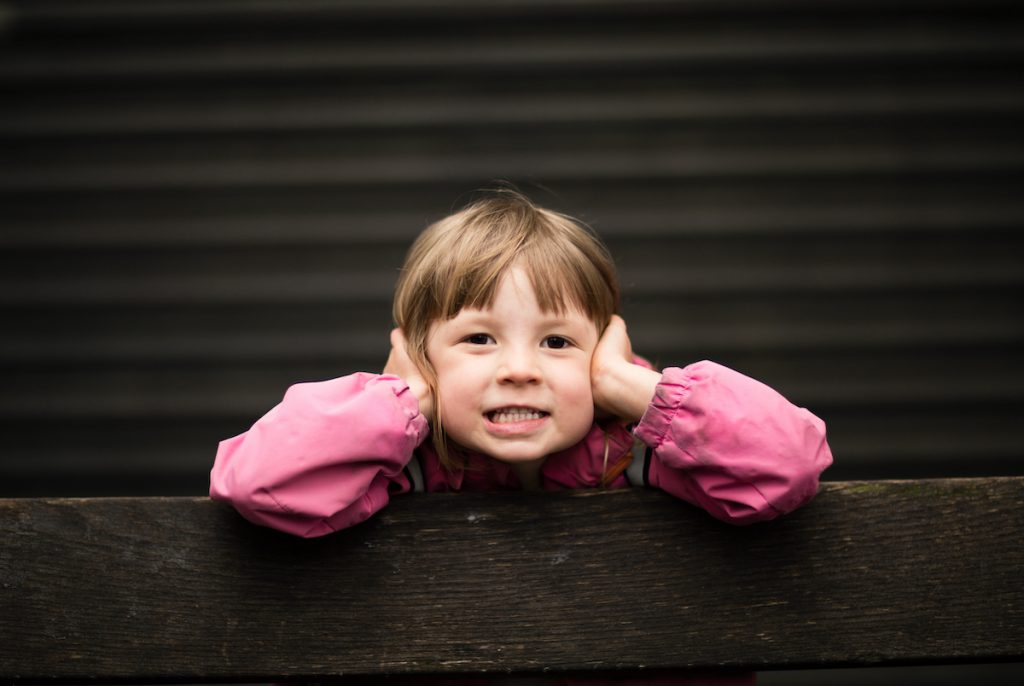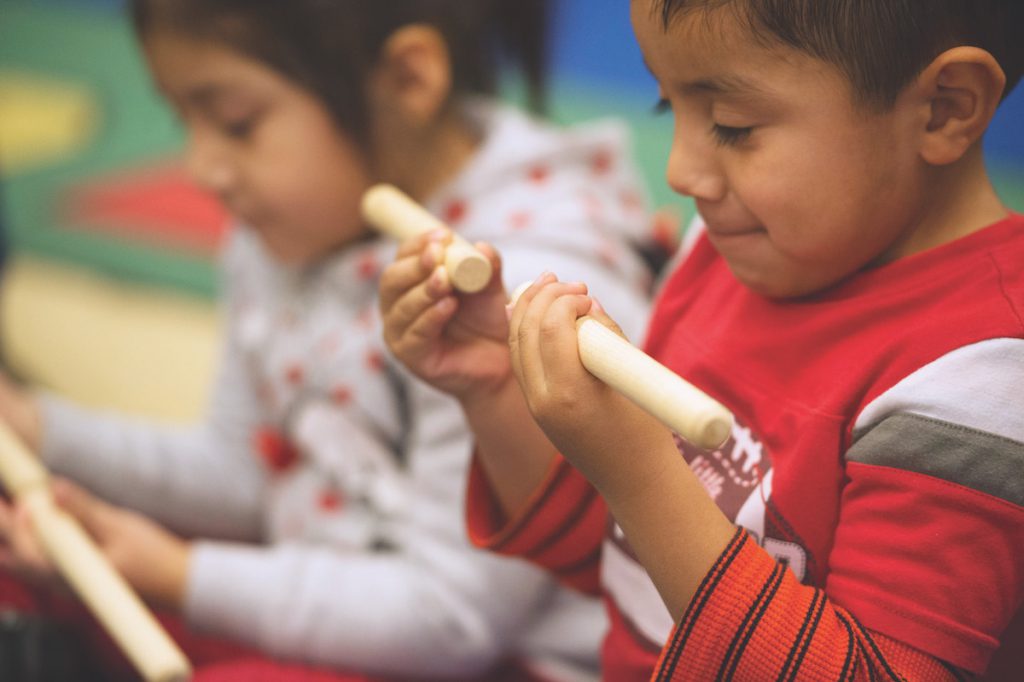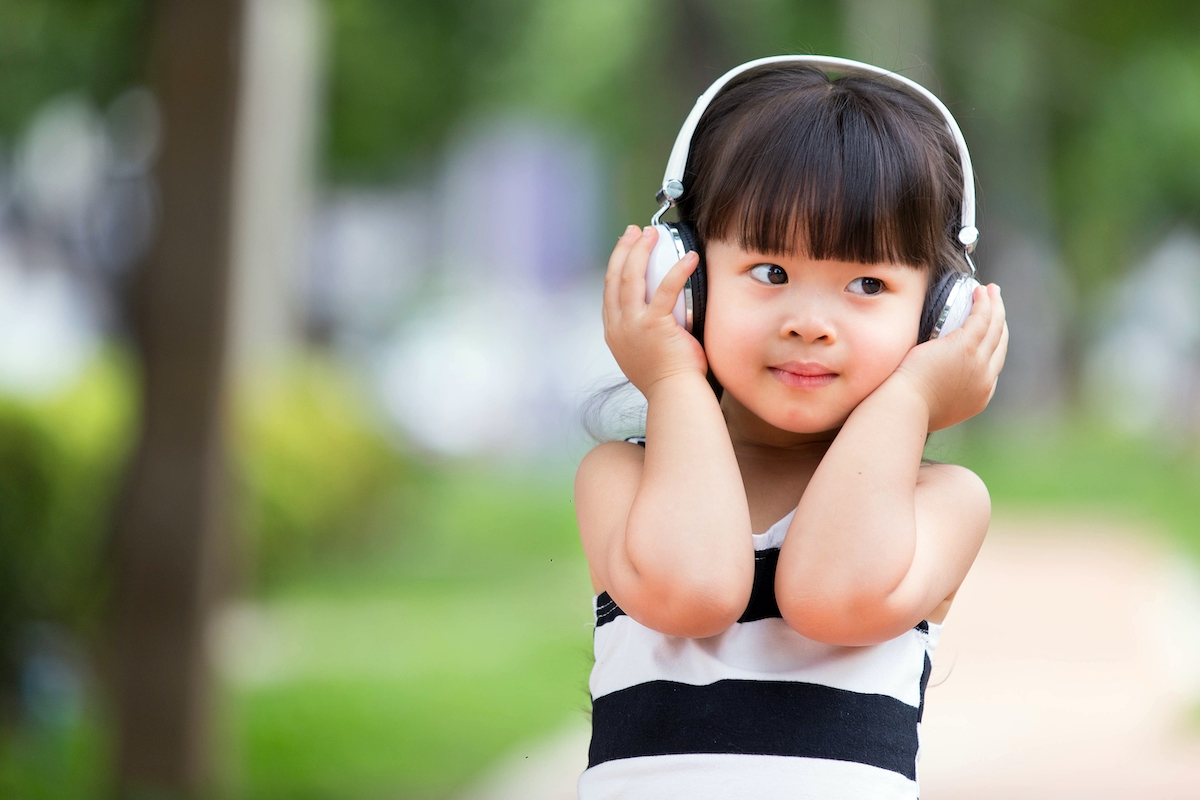Athletic events, community concerts, and parades are the perfect outlet for making family memories, but did you know excessive volumes can lead to early hearing loss?
Whenever possible, it’s important to protect your child’s intricate hearing system. Even a little loss can affect everything from daily conversations to how they hear music.
So, how loud is too loud?
First, let’s define decibel levels (the unit of measurement for sound). According to The Environmental Protection Agency (EPA), hearing damage can occur when you’re exposed to sounds louder than the “safe noise level” of 70 decibels for over 24 hours.
The difference with large events—think a packed athletic stadium—is that you’re dealing with twice the noise. Exposure to 115 decibels for just 28 seconds can cause hearing loss, and sounds of 120+ decibels are considered dangerous for children.
Check out this range of noise levels from what you might hear at home, to what you might hear at public events.
| Soft music | 30 decibels |
| Vacuum cleaner | 75 decibels |
| Heavy traffic | 80-90 decibels |
| Motorcycle | 100 decibels |
| Sports events and rock concerts | 120-130 decibels |
| Sirens and fireworks | 140+ decibels |
The American Speech-Language-Hearing Association (ASHA) spells out two clear and easy signs that something is too loud: you must raise your voice to be heard, or you can’t hear or understand someone three feet away from you.
If either of those come into play, it’s time to take action.
What can I do to prevent early hearing loss?
When it comes to protecting your child’s hearing, try to live by this rule of five:
Plan ahead.
Keep noise-cancelling headphones in your diaper bag or car at all times. That way, you’ll always be prepared for a spontaneous family adventure that just might involve a noisy atmosphere.
Be aware of how close you are to the noise.
For unexpected exposure to loud sounds (think passing ambulances), teach your little ones how to softly plug their ears.

When possible, a safe distance for children from sounds in the 120+ decibel range is 165-200 feet. So, when you’re at an event, choose to move away from the source of the sound if possible (like moving to the back of the crowd at a concert).
Be aware of how long you’ll be around the noise.
Remember, exposure to sounds of 115 decibels or higher for just 28 seconds can cause damage, so if you’re heading to the big game, bring those headphones with you.
Speak up.
Some venues, like movie theaters, can be unnecessarily noisy. Speak to the manager if you feel the volume is too loud, and ask them to turn it down.
Do your research.
It’s important to be mindful of sounds in our everyday environments, too. Check noise ratings on appliances, sporting equipment, power tools, hair dryers, and children’s toys before purchasing something that your family could be exposed to on a daily basis.
How can music class help my family regulate noise?
Early music classes should explore the quality, pitch, and volume of a sound. While little ones are learning to explore this sense, parents and caregivers are learning to look for cues.

For example, in a Kindermusik class, children might tap a pair of wooden rhythm sticks loudly and quietly. While they tap, grownups can observe their reactions:
- Hands over ears when tapping is moderate could indicate sensory issues
- Hands over ears when tapping is loud tells everyone that the volume is too high
- No physical reaction when tapping is loud (multiple times) could indicate early hearing loss
It’s not uncommon for children to have different sensitivities when it comes to sounds. So, learning about your little one’s specific reactions to various volumes is an important part of protecting their hearing.
Wherever you’re headed this season, just a few extra precautions can make a world of difference in your child’s immediate comfort and in their ability to hear properly for years to come.
Ellen Singh is an Accredited Kindermusik Educator who works with the Central Institute for the Deaf in St. Louis, MO.
Search for a Kindermusik class near you to learn more about how to enhance your child’s sense of sound, and better prevent early hearing loss.

